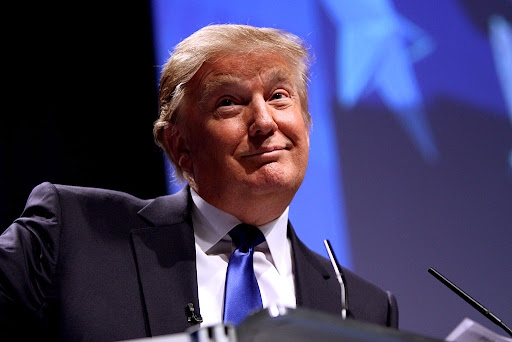
Political parties are interest groups that are established to support citizens in their quest to pursue and attain the enjoyment of civil liberties. They are used to create leadership order in political spaces that correspond to states or subsets of states.
These organisations are human led and formed for the sole purpose of power acquisition, dispensation and retention. Political parties arose from the growth of democracy from the city states of Greece.
In the Aristotelian government the city states had leadership that practiced direct citizens’ participation. Aristotle argues that all citizens should take an equal share in the administration of the city. In other instances, the citizens vested their sovereign authority in a monarchy.
The monarch is what was envisaged as the philosopher king by Plato.
The concept of the philosopher king was first proposed by the Greek philosopher Plato in his dialogue, the Republic. It refers to a theoretical ruler who combines philosophical knowledge and temperament with political skill and power.
Plato argued that the ideal state – one which ensured the maximum possible happiness for all its citizens – could only be brought into being by a ruler possessed of absolute knowledge, obtained through philosophical study.
Historical figures, including Marcus Aurelius and Ashoka the Great, have been described by ancient and modern writers as embodying the philosopher king ideal.
These early Greek philosophers including Socrates postulated a state with an enlightened citizenry. They expected that the citizens were conscious enough to know what was in their best interest. The citizens were thus able to make virtuous choices and informed decisions.
However, as societies progressed and became sophisticated states turned to representative leadership but within the framework of democracy. It had become untenable to have every citizen gather in the city square to discuss and resolve matters of the state.
A system was thus developed to enable the citizens exercise their sovereign will albeit through delegation. Elections therefore became the most favoured mode of selecting the state officials.
The entrenchment of representative democracy led to the emergence of organised groups and later political parties to champion special interests. However, modern political parties are considered to have emerged around the end of the 18th century; they are usually considered to have first appeared in Europe and the United States of America, with the United Kingdom's Conservative Party and the Democratic Party of the United States.
Political factions or parties began to form during the struggle over ratification of the US federal Constitution of 1787. Friction between them increased as attention shifted from the creation of a new federal government to the question of how powerful that federal government would be.
The Federalists, led by Secretary of Treasury Alexander Hamilton, wanted a strong central government, while the Anti-Federalists, led by Secretary of State Thomas Jefferson, advocated states’ rights instead of centralised power. 'Federalists coalesced around the commercial sector of the country while their opponents drew their strength from those favouring an agrarian society.
Broadly, the functions of political parties include representation of societal interests in legislatures; political socialisation and participation; political education and communication; recruitment of political leaders; policy formulation; and working towards national cohesion.
A political party brings together people with the same political ideas. By taking part in an election, parties hope to get as many of their members as possible into a representative body, like Parliament or a municipal council. At the same time, they try to hold as many posts as possible in the government, or in the municipal or provincial executive.
Political parties therefore deliberately seek to promote the interests of their voters by drawing up party programmes. They bring people together to achieve control of the government, develop policies favourable to their interests or the groups that support them, and organise and persuade voters to elect their candidates to office.
Although very much involved in the operation of government at all levels, political parties are not the government itself, but serve the key role of representation of group interests, simplifying of choices for ease of decision making, and making as well as influencing public policy.
The basic purpose of political parties is therefore to nominate candidates for public office and to get as many of them elected as possible. Once elected, these officials try to achieve the goals of their party through legislation and programme initiatives.
Although many people do not think of it this way, registering as a Democrat, Conservative or Republican makes them members of a political party. Political parties want as many people involved as possible.
Most members take a fairly passive role, simply voting for their party's candidates at election time. Some become more active and work as officials in the party or volunteer to persuade people to vote. The most ambitious members may decide to run for office.
For political parties to be effective in their roles and objectives they need an enlightened membership. Members who possess the necessary knowledge and skills in matters of public governance. They must also have innate conviction to civic duty.
The members of a political party should be at the forefront of championing national values and ethos of patriotism. In pursuit of their respective ideological cleavages, they must individually and severally demonstrate fidelity to the foundations and the building blocks of nationhood.
They must be the vanguards of national cohesion and protect the integrity and sovereignty of the state with zeal and valor. The members should be conscientious of the statehood over their provincial interests.
In proper and good democratic practice, political parties are expected to conduct education of their members through training and indoctrination. Training would impart the requisite impartial knowledge in best practices in governance.
On the other hand, indoctrination equips the members with the contents of their respective ideological orientation and dogma. Political parties in Kenya have not been keen to undertake political and civic education across their membership. In spite of huge budgetary allocation from the consolidated fund, the party leaders prefer to utilise the funds almost entirely for administrative purposes.
The distribution of FY 2023/24 Political Parties Fund was as follows: The National Rainbow Coalition-Kenya 3,115,272, Wiper- Democratic Movement 29,764,329, United Democratic Alliance 237,857,736, Jubilee Party 55,729,159, Kenya African National Union 9,907,621and Orange Democratic Movement 127,057,449. Except for their respective grassroots elections, no more was used by these parties in the capacity building activities of the members.
The challenge is further aggravated by the fact that most parties in Kenya are regional based. This means that they inadvertently derive their membership from specific ethnic communities.
Their membership and corresponding leadership is thus drawn from one specific tribe if not a conglomeration of tribes within a region.
Therefore, instead of championing the national development agenda, many political parties actively promote narrow regional and ethnic agenda. With a membership that is largely uninformed of their civic responsibilities, the country has not achieved the desired political stability since independence.
Reactionary political operatives have routinely taken advantage of the low levels of consciousness to deftly use the political party platform to champion divisive politics.
This has pushed an ethnically toxic environment. Political leaders should thus make deliberate efforts to champion voter and civic education within the ranks and files of their respective political parties.
Additionally, the government must enact legislation to make it mandatory for parties to devote a good portion of their resources from the exchequer to member education.
Ochieng’ Kanyadudi is a political and policy analyst







